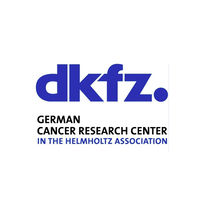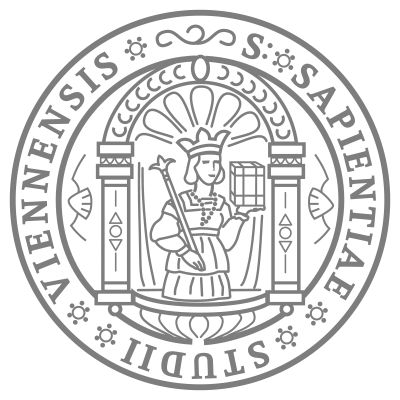预约演示
更新于:2025-05-07
KP-692
更新于:2025-05-07
概要
基本信息
药物类型 小分子化药 |
别名 + [4] |
作用方式 抑制剂 |
作用机制 ATP2A1抑制剂(肌浆网/内质网钙ATP酶-1抑制剂)、DNA抑制剂(DNA抑制剂)、SERCA2抑制剂(肌浆网/内质网钙ATP酶-2抑制剂) |
治疗领域 |
在研适应症- |
在研机构- |
权益机构- |
最高研发阶段终止临床1期 |
首次获批日期- |
最高研发阶段(中国)- |
特殊审评- |
登录后查看时间轴
结构/序列
分子式C21H19Cl4N6Ru |
InChIKeyPJXASRBEMZORRI-UHFFFAOYSA-K |
CAS号124875-20-3 |
关联
100 项与 KP-692 相关的临床结果
登录后查看更多信息
100 项与 KP-692 相关的转化医学
登录后查看更多信息
100 项与 KP-692 相关的专利(医药)
登录后查看更多信息
154
项与 KP-692 相关的文献(医药)2023-01-01·Pharmacology & Therapeutics
Advances in anticancer alkaloid-derived metallo-chemotherapeutic agents in the last decade: Mechanism of action and future prospects
Review
作者: Tabassum, Sartaj ; Arjmand, Farukh ; Ansari, Mohammad Fawad ; Khan, Huzaifa Yasir
2022-11-01·Journal of Inorganic Biochemistry
A split β-lactamase sensor for the detection of DNA modification by cisplatin and ruthenium-based chemotherapeutic drugs
Article
作者: McFarlane Holman, Karen L ; Meyer, Scott C ; Corpuz, Elizabeth L S ; Hinton, Samuel R
2022-10-01·Journal of Molecular Modeling
Reactions of Ru(III)-drugs KP1019 and KP418 with guanine, 2′-deoxyguanosine and guanosine: a DFT study
Article
作者: Shah, Pramod Kumar ; Jena, Nihar R ; Shukla, Pradeep Kumar
1
项与 KP-692 相关的新闻(医药)2024-10-02
摘要:阿尔茨海默病(AD)是痴呆的主要形式,带来了重大且日益严峻的全球挑战。其病因复杂多样,源于衰老、遗传和环境等因素的结合。我们对AD病理学的理解涉及多种假设,如胆碱能、淀粉样蛋白、tau蛋白、炎症、氧化应激、金属离子、谷氨酸兴奋毒性、微生物肠脑轴和异常自噬等。然而,解开这些病理方面的相互作用并确定AD的初始触发因素需要进一步阐明和验证。在过去几十年中,由于效果有限或副作用,大多数临床药物已被中止。目前可用的药物主要提供症状缓解,并常伴有不良副作用。然而,美国食品药品监督管理局(FDA)最近批准的阿杜卡努单抗和利卡尼单抗展示了疾病修饰效应的潜力。尽管如此,这些药物的长期疗效和安全性需要进一步验证。因此,寻找更安全、更有效的AD药物的任务仍然是一项艰巨而紧迫的任务。本综述讨论了AD发病机制的当前理解、诊断生物标志物的进步、临床试验的最新进展以及AD药物开发的新兴技术。我们重点介绍了在发现选择性抑制剂、双靶点抑制剂、变构调节剂、共价抑制剂、靶向蛋白降解的嵌合体(PROTACs)和蛋白质-蛋白质相互作用(PPI)调节剂方面的最新进展。我们的目标是为新型AD药物的前瞻性开发和临床应用提供见解。
1.引言
痴呆已成为全球性的卫生挑战。根据世界卫生组织2022年的痴呆研究蓝图,全球约有5520万人受到影响。60岁以上人群中的患病率因地区而异:东南亚报告的患病率为2.9%,欧洲为6.5%,其他地区患病率在3.1%至5.7%之间。痴呆的发病率普遍上升,而一些高收入国家则有所下降。到2030年,预计患有痴呆的人数将激增至7800万。此外,与医疗护理、社会服务和非正式护理相关的全球经济负担预计将超过2.8万亿美元。这种情况将对个人、家庭和社会产生深远影响。阿尔茨海默病(AD),作为痴呆的主要形式,表现出类似的流行病学趋势,并且在全球范围内代表了一个紧迫且日益严重的挑战。在美国,大约九分之一的65岁及以上的个体(10.8%)患有AD,年发病率为每10万人中有1275个新病例。AD患者大脑中显著积累了淀粉样β蛋白(Aβ)斑块和神经纤维缠结(NFTs),伴随着一系列病理过程,如神经炎症、突触功能障碍、线粒体和生物能量紊乱,以及血管异常。这些过程最终可能导致神经元死亡。临床上,AD的主要特征是记忆认知障碍。最初,症状可能表现为抑郁、焦虑、社交退缩和睡眠模式改变。随着疾病的进展,症状恶化,导致严重的记忆丧失,神经精神症状如幻觉和妄想,以及在晚期加剧的行为和情绪问题。此外,一些非记忆性认知障碍患者可能在视觉空间、语言、执行功能、行为或运动技能方面经历不同程度的功能障碍。此外,与AD相关的共病可能加剧患者的健康状况,导致临床表现多样性,并加速认知功能障碍。这些情况包括高胆固醇血症、高血压、糖尿病、肥胖、抑郁和心血管疾病。此外,由AD进展引起的并发症,如血栓形成、行动障碍、吞咽困难、营养不良和肺炎(肺部感染),可能显著降低患者的生活质量并增加死亡风险。AD进展与共病之间的联系目前正在进行研究。遗憾的是,目前还没有治愈AD的方法,患者通常在晚期且不可逆转的阶段被诊断,平均生存期为4-8年。然而,大脑中的病理变化始于临床前阶段,比临床症状早数十年。通常,患者在6-10年后过渡到轻度认知障碍(MCI),大约15%的人在2年内发展为AD,三分之一的人在5年内发展。因此,关注临床前和MCI阶段至关重要,因为在这些阶段,早期干预和管理可修改的风险因素可能降低发病风险或延缓疾病进展。有证据表明,全球约三分之一的AD病例与可修改的风险因素密切相关。令人鼓舞的是,由于血管健康、生活方式选择和教育水平等风险因素的改善,美国、韩国、欧洲和亚洲某些地区的AD发病率呈下降趋势。近年来,许多文章强调了AD的可修改风险因素,以及多领域阿尔茨海默病预防试验的好处。这些见解强调了早期预防策略对AD的有效性。
AD的病因复杂多样,其发病的确切机制尚未完全理解。除了Aβ和tau的关键作用外,一系列其他因素可能对AD的病理有所贡献,如乙酰胆碱缺乏、神经炎症、氧化应激、生物金属稳态失衡、谷氨酸失衡、胰岛素抵抗、肠道微生物组异常、胆固醇稳态破坏、线粒体功能障碍和自噬异常。这些因素也构成了临床诊断和治疗策略的基础。生物标志物可以在早期识别患者,监测疾病进展,并评估药物的有效性。围绕这些病理因素的假设为药物开发提供了潜在的靶点。然而,有效AD药物的开发充满了挑战。他克林因肝毒性主要被撤出市场。多奈哌齐、利伐司特明、加兰他敏、美金刚和纳美瑞等药物已在临床环境中使用。虽然这些药物可以暂时缓解或稳定症状,但它们无法阻止疾病的长期进展,并伴有各种副作用。新药,包括甘露寡糖钠(GV-971)、阿杜卡努单抗、利卡尼单抗和多纳单抗(目前正在审查市场批准),旨在提供疾病修饰治疗,干预AD的进展。它们的临床相关性仍需全面评估。自1906年AD首次描述以来,已经过去了一个多世纪,对其发病机理的理解、诊断的改进和治疗的增强都取得了显著进展。不幸的是,目前的提供物未能满足解决认知需求。因此,本综述考虑了AD研究框架的预防、诊断和治疗,并讨论了发病机理、诊断生物标志物、临床试验和下一代小分子药物。它还强调了通过创新药物开发技术提高药物安全性和有效性的关键需求,如选择性抑制剂、双靶点抑制剂、变构调节剂、共价抑制剂、靶向蛋白降解的嵌合体(PROTACs)和蛋白质-蛋白质相互作用(PPI)调节剂,旨在实现更有效的临床转化。
图 1 展示了阿尔茨海默病(AD)的发病机制图,包括以下假设:胆碱能假说,谷氨酸能假说,淀粉样蛋白假说,tau蛋白假说,炎症假说,肠道菌群-肠-脑轴假说,氧化应激假说,金属离子假说,异常自噬假说,这些假设从不同角度解释了AD的潜在病理机制,包括神经递质系统的失衡、蛋白质异常积累、炎症反应、肠道菌群与大脑的相互作用、氧化损伤、金属离子的异常作用以及自噬过程的紊乱等。
2.阿尔茨海默病的机制
为了解开阿尔茨海默病(AD)的发病机制,已经提出了许多假设,但统一理论仍然难以捉摸,这可能是由于AD的复杂性质。AD可以分为两种主要类型:家族性(占AD病例的1-5%)和散发性(超过95%的病例)。家族性AD(FAD)主要特征是淀粉前体蛋白(APP)、早老蛋白1(PS1)和早老蛋白2(PS2)基因的常染色体显性遗传突变,通常在30-65岁之间显现并迅速进展。相比之下,散发性AD(SAD),也称为晚发性AD,通常在65岁后显现,并受到遗传风险、环境因素和各种共病的组合影响。全基因组关联研究(GWAS)和全基因组元分析已经确定了与SAD相关的众多遗传风险位点,涉及免疫反应、脂质代谢、Aβ斑块、NFTs和内吞作用的途径,但仍有许多位点尚未被发现。非遗传因素,如生活方式、心理社会因素、环境以及与AD相关的疾病(共病和并发症),可能会增加患AD的风险。它们可能通过改变生物学途径和遗传易感性来实现这一点,使得在AD中确定临床病理的直接原因变得具有挑战性。此外,不同的AD亚型(典型和非典型)通常表现出不同的临床症状。第三,AD具有多种病理特征,包括Aβ斑块、NFTs、突触和神经元丧失以及神经炎症。总体而言,触发因素的多样性、临床表现和神经病理学特征的异质性构成了AD的复杂性基础。因此,开发一个综合理论框架,将AD的遗传基础、分子机制和临床表型联系起来,是极其具有挑战性的。当前AD研究的限制也阻碍了我们对其病理生理学的全面理解。此外,临床试验的高失败率使得有效验证假设变得困难,可能归因于多种理论的共存(将在后续部分详细说明)。
2.1.胆碱能假设
胆碱能假设是最早描述AD发病机制的假设。它描述了Meynert基底核(NBM)中胆碱能神经元的严重损伤,导致大脑皮层和海马(与学习和记忆相关的区域)中的胆碱乙酰转移酶(ChAT)活性显著下降。此外,这种神经元损伤伴随着老年斑密度的显著增加。胆碱能假设中的情况表明,基底前脑胆碱能缺陷与AD中观察到的认知障碍之间存在密切关系。胆碱能神经元是中枢胆碱能系统的重要组成部分,对认知功能、注意力和记忆的调节有重要贡献。这些神经元的细胞体主要位于内侧隔核(MSN)、布罗卡斜带(DBB)、NBM和无名质(SI)。观察到NBM区域的胆碱能神经元特别容易在AD中退化和丧失。人们认为这与依赖神经生长因子(NGF)的营养耗竭有关。乙酰胆碱(ACh)由ChAT从胆碱和乙酰辅酶A合成,然后通过囊泡乙酰胆碱转运体(VAChT)运输到突触囊泡中。当神经信号到达时,ACh被释放,在那里它与突触后膜上的毒蕈碱型和烟碱型乙酰胆碱受体(mAChRs和nAChRs)结合以传递神经信号。随后,突触间隙中的ACh被乙酰胆碱酯酶(AChE)降解为胆碱,并重新吸收到突触前胆碱能神经元中。ChAT活性的下降,加上Aβ对营养失衡、ACh合成、释放和降解的有害影响,导致ACh水平的降低。这种减少损害了其在学习和记忆、运动调节以及睡眠周期调节中的生理功能。总之,胆碱能假设作为一个确立的经典理论,在AD的早期研究和药物开发中取得了显著进展。AChE抑制剂(AChEIs),如多奈哌齐、利伐司特明和加兰他敏,是20多年前批准的,仍然是临床管理中AD治疗的主要手段。尽管取得了这些进展,但这些药物的有限疗效和副作用,以及AD中非胆碱能组的存在,以及这些病理特征的非特异性,挑战了胆碱能假设完全解释AD病理复杂性的能力。
2.2.淀粉样蛋白假设
Aβ的积累是广泛研究的常染色体显性AD和散发性晚发性AD患者的标志性病理特征。Aβ来源于APP的加工,APP是一种跨膜糖蛋白,通过β-分泌酶和γ-分泌酶(一个多蛋白复合体,以PS1或PS2作为催化亚基)的顺序裂解。这个过程产生各种长度的Aβ片段,Aβ40和Aβ42是主要的。Aβ42的疏水性C-末端促进了β-片构象转变和聚集,形成老年斑的核心成分。在FAD中,PS1的突变可能通过多种机制促进Aβ积累,包括增加Aβ产生和损害自噬功能。然而,FAD突变并不一定与Aβ42水平的增加或Aβ42/Aβ40比率的升高有关。SAD中的斑块形成更为复杂,与Aβ产生和清除机制之间的动态失衡有关。载脂蛋白E(APOE),特别是ε4等位基因,是SAD的最重要遗传风险因素。携带一个或两个APOE ε4等位基因分别增加2-3倍和12倍患AD的风险。研究表明,APOE蛋白可以在神经纤维斑中检测到,携带APOEε4等位基因的个体在大脑中也有更高的Aβ斑块负担,突出了其对Aβ沉积的关键影响。虽然确切的机制尚未达成一致,但体外和体内实验提出了APOEε4的几种潜在途径,包括增强Aβ产生(促进APP转录和加工)、促进Aβ聚集(与可溶性和纤维状Aβ的相互作用有助于种子形成/寡聚体化/原纤维形成)以及损害Aβ清除(破坏胶质和酶促Aβ降解功能,以及Aβ从大脑中的清除率)。此外,其他遗传风险因素、心血管健康问题(如糖尿病、高胆固醇血症)和生活方式因素(如饮食和睡眠)也因其与SAD中Aβ代谢的关系而在近年来被广泛研究。Aβ聚集体的毒性机制仍不确定,但存在不同的观点:Aβ可能通过聚集过程中生理功能的丧失来引起AD病理。Aβ单体具有神经保护特性,假设其在抗氧化和抗菌活动中发挥作用,改善受损神经系统的状况,调节血管系统,并增强突触可塑性。可溶性Aβ寡聚体是主要的神经毒性物质,破坏细胞膜完整性,激活炎症反应,引起钙稳态失衡和线粒体功能障碍,触发氧化应激,并损害突触。寡聚体对神经元和胶质细胞的潜在下游途径如图2和图3所示。淀粉样级联假设已经提出30多年,为AD发病和进展的机制提供了关键见解。这一假设导致了药物的开发,包括β-分泌酶抑制剂、γ-分泌酶抑制剂和调节剂、抗淀粉样蛋白抗体、Aβ疫苗和Aβ聚集抑制剂,旨在延缓疾病的进展。目前,如阿杜卡努单抗、利卡尼单抗和多纳单抗等抗体在证明Aβ是AD发展的重要因素方面显示出了希望。然而,鉴于在减少Aβ脑负担方面的有益效果,这些药物的临床价值仍有待验证。淀粉样级联假设仍然存在争议。这一理论在解释多样化的病理特征、Aβ与认知下降之间的弱相关性以及在针对Aβ的众多临床药物中未能证明疗效方面面临挑战。这些发现表明,Aβ沉积或斑块形成可能不是疾病的根本原因,而是病理过程的结果或次要因素。鉴于tau的日益认识的关键作用,tau和Aβ在AD中的病理序列和相互作用值得进一步探索。
图 2 展示了Aβ对神经元突触和小胶质细胞可能的分子下游途径的示意图。(1) Aβ能够与细胞膜相互作用,并结合多种突触受体,如PrPC、NMDA受体、P75NTR和mGluR5,这导致一系列事件,包括钙离子稳态失衡、长期增强(LTP)的抑制、tau蛋白过度磷酸化、线粒体功能障碍和氧化应激,最终导致神经元死亡。(2) Aβ阻断兴奋性氨基酸转运体(EAAT)受体的谷氨酸再摄取,导致谷氨酸在突触间隙中积累和神经元过度活跃。(3) Aβ和一些促炎细胞因子(如TNFα、IL-1α和C1q)可能诱导小胶质细胞的A1表型。这种转变可能涉及改变小胶质细胞的功能和调节它们与其他细胞(如神经元和微胶质细胞)的相互作用,从而参与Aβ沉积、神经炎症、突触丢失和神经元死亡等过程。(4) APOE主要由小胶质细胞释放,与脂蛋白结合形成APOE相关的脂蛋白颗粒,这些颗粒可以结合可溶性Aβ并介导其清除。
2.3.Tau蛋白假设
作为NFTs的主要组成部分,tau蛋白在空间和时间分布上与临床症状强烈相关,使其成为AD患者中高度特异性的病理生物标志物。Tau是一种主要在神经元轴突中表达的微管相关蛋白,其在树突、胞体和胶质细胞中的表达水平较低。Tau在其N端区域、C端区域和重复区域拥有众多的磷酸化位点,这些位点由各种激酶和磷酸酶的平衡调节,以维持正常的神经元生理功能。在病理条件下,磷酸酶和激酶活性的不平衡导致tau的过度磷酸化。这一过程导致tau蛋白从微管上脱离,随后发生构象变化和错位,tau寡聚体、成对螺旋丝(PHFs)和NFTs在细胞体和树突内的积累。这些变化最终损害神经元功能并导致细胞死亡。此外,其他翻译后修饰,包括截断、糖基化、糖化和泛素化,在促进tau聚集和增加其毒性方面也起着积极作用。Tau寡聚体不仅在细胞内产生神经毒性,还通过突触传递促进病理传播。这一过程诱导受体神经元中单体tau的聚集,导致新寡聚体的形成。总体而言,tau在AD发病机制中的重要性源于tau积累与认知症状之间的强相关性。近年来,人们越来越关注tau沉积,包括tau沉积、脑萎缩和在典型和非典型AD中的葡萄糖代谢之间的相关性,以及tau沉积在分子和细胞水平上的影响。尽管基于tau假设的药物初步研究没有产生有希望的结果,但众多治疗方法仍在积极开发中。这些包括激酶抑制剂、tau聚集抑制剂、tau免疫疗法、抑制tau产生的反义寡核苷酸、促进自噬介导降解的药物和针对tau的PROTACs。
图 3 展示了Aβ对微胶质细胞可能的分子下游途径的示意图。微胶质细胞具有众多模式识别受体,能够与Aβ结合,启动炎症级联反应。这一过程促进了NLRP3的组装和激活,导致促炎细胞因子的释放,进一步加剧Aβ的聚集。此外,该图还涵盖了TREM2的下游信号通路。与AD相关的一些变异,如TREM2变异体R47H,可能会减少TREM2与配体(如APOE-Aβ复合物、APOE、磷脂和Aβ)的结合或内化。这种减少可能因此损害微胶质细胞的激活,从而影响它们清除淀粉样斑块的能力。值得注意的是,关于TREM2的体内配体和信号通路,以及TREM2变异体与AD之间的关系,仍存在许多不确定性和争议。未来的体内实验需要阐明这些方面。
2.4.神经炎症假设
神经炎症通常被描述为中枢神经系统(CNS)中无法自行解决的慢性炎症反应。它通常涉及神经炎症期间胶质细胞的激活和促炎因子的释放。小胶质细胞,作为CNS中最主要的先天免疫细胞,作为对危险相关分子模式和病原体相关分子模式受体的初始防御。在稳态下,小胶质细胞是长形、分支的细胞,监测其环境并分泌神经营养因子。一旦检测到刺激,小胶质细胞就会发生形态变化并启动各种反应。Aβ是小胶质细胞激活的典型触发因素。激活的小胶质细胞迁移至老年斑,吞噬Aβ,并释放酶来分解Aβ。长期而言,它们可能在处理Aβ方面变得效率低下,但继续产生促炎细胞因子。Aβ还导致小胶质细胞内NLRP3炎症体的形成和激活,释放ASC斑点,与Aβ快速结合,促进Aβ聚集体和Aβ病理的传播。在AD后期,小胶质细胞和tau蛋白之间的相互作用可能导致tau磷酸化增加和外泌体tau分泌,从而促进tau的传播。随着过度激活,补体级联可能导致小胶质细胞异常修剪突触,进一步加剧AD病理。研究人员已经鉴定出小胶质细胞的不同激活阶段,每个阶段都与不同的基因表达模式相关。早期阶段以与细胞增殖相关的基因为特征,而后期阶段则以与免疫反应相关的基因为特征。GWAS已经确定了许多与小胶质细胞活动密切相关的风险基因,突出了小胶质细胞作为有希望的治疗靶点的重要性。针对髓样细胞上表达的触发受体2(TREM2)有可能通过提高小胶质细胞对病理蛋白的响应性来发挥神经保护作用。同时,APOE4可能改变激活的小胶质细胞的行为和功能,导致Aβ沉积增加、tau相关神经退行性变、增强炎症、改变免疫反应和破坏突触稳态。因此,在Aβ斑块相关的小胶质细胞中降低APOE4表达可能提供一种有效的方法。总之,神经炎症与Aβ和tau病理密切相关,众多与免疫反应相关的风险因素的发现表明神经炎症是AD发病机制中的重要因素。
2.5.氧化应激假设
在正常的代谢过程中,身体会产生活性氧(ROS)、活性氮(RNS)和其他高度反应性和不稳定的物质。这些物质通常被高效的抗氧化防御系统保持在低水平,以保护细胞免受氧化损伤。然而,在AD患者的大脑中,金属积累、相关酶(例如,NADPH氧化酶)的过度表达和线粒体功能障碍等因素参与产生过量的ROS,超过了内源性抗氧化系统的能力,导致氧化失衡。这会损害神经细胞膜脂质、蛋白质和核酸,最终导致神经细胞死亡。线粒体中电子传递链的异常是自由基产生的一个重要因素。Aβ通过降低关键酶的活性和破坏线粒体的动态,在线粒体功能障碍中起着至关重要的作用。氧化应激在AD的早期阶段表现为不同AD假设之间的串扰。例如,氧化应激调节APP的过程和分泌酶的活性,从而促进淀粉样蛋白途径。此外,它在tau蛋白的磷酸化以及随后NFTs的形成中起着重要作用。由ROS诱导的小胶质细胞激活触发神经炎症循环。游离金属和Aβ与金属的复合物作为ROS产生的催化剂,最终导致神经细胞死亡。鉴于氧化应激与其他AD机制之间的联系,抗氧化剂已成为AD治疗中有前景的药剂,在动物模型中观察到了积极的结果。然而,抗氧化剂在AD临床试验中的有效性仍然不确定。几项研究表明,单独治疗或与胆碱酯酶抑制剂联合治疗并没有为AD患者带来显著的认知益处。未来的工作应该集中在优化药物剂量和在疾病进展过程中尽早启动抗氧化剂治疗,以期获得更好的结果。总之,氧化应激作为AD发病机制中的重要因素已经引起了广泛关注。然而,Aβ与氧化应激之间的相互作用,以及它们在AD中的顺序,需要进一步的研究和探索。
2.6.金属离子假设
在生理条件下,微量元素维持神经元金属离子微环境的稳态。这种平衡可能因金属离子的不当沉积或重新分布而被破坏,铁离子(Fe2+)、铜离子(Cu2+)和锌离子(Zn2+)的稳态失衡与AD密切相关。这些生物金属在Aβ斑块和NFTs中的积累在病理性蛋白沉积中起着关键作用。例如,它们可能调节必需酶的活性,改变蛋白质的构象,或破坏清除途径。当金属被隔离在蛋白质沉积物中时,可能会引发一系列活性氧(ROS)的产生,并加剧毒性。具体来说,铁诱导的氧化应激导致铁从含铁蛋白中释放增加,将Fe3+转化为细胞内的Fe2+。Fe2+的过量可能导致通过芬顿反应生成ROS,最终导致神经元死亡的铁死亡和脂质过氧化。同样,铜+直接结合到脂酰化的二氢硫辛酸转乙酰酶(DLAT)上,诱导脂酰化DLAT聚集,最终导致铜死亡。在蛋白质沉积物中的隔离也会导致功能性金属的丧失,可能有助于AD中的认知能力下降。锌可能通过N-甲基-D-天冬氨酸(NMDA)受体干扰信号传导。锌的补充可能促进proBNDF的成熟,减少突触功能障碍和神经元死亡。因此,在AD的谷氨酸兴奋毒性和突触功能障碍的背景下,锌的缺乏至关重要。总的来说,金属稳态失衡与AD中的多种事件密切相关,如淀粉样变性、tau病变、氧化应激和神经元死亡。这一假设为理解AD的发病机制和检测病理变化提供了另一种方法。此外,基于这一假设开发的金属离子螯合剂需要克服不良反应和血脑屏障(BBB)渗透性差等挑战,以证明其潜在的治疗价值。
2.7.谷氨酸兴奋毒性
谷氨酸是中枢神经系统中谷氨酸能神经传递的主要兴奋性神经递质。它们的受体包括离子型谷氨酸受体,包括NMDA受体、α-氨基-3-羟基-5-甲基-4-异恶唑丙酸(AMPA)受体和莨菪碱受体,以及代谢型谷氨酸(mGlu)受体。谷氨酸主要与NMDA受体相互作用,控制钠和钙进入神经元。在生理条件下,镁离子作用于关闭NMDA受体的阳离子通道,阻止离子进入神经元。然而,在AD中,NMDA受体过度刺激,导致镁脱落,并允许过量的钠和钙离子进入。钠进入神经元导致其暂时肿胀,而钙水平的增加启动各种Ca2+依赖的过程。这些过程包括产生ROS、破坏线粒体功能以及激活坏死/凋亡途径,最终导致神经元的永久性兴奋性损伤。总的来说,谷氨酸兴奋毒性假设的药物验证表明,神经递质调节在改善认知症状方面的有效性。然而,基于神经递质的药物的局限性和对其他假设的关注似乎阻碍了对兴奋毒性机制的进一步研究。在抑制性神经递质系统(例如γ-氨基丁酸)中观察到的变化,以及兴奋毒性可能在Aβ和tau病理之前改变认知水平的潜力,表明兴奋毒性可能在AD治疗中具有更大的潜力。
2.8.微生物群-肠-脑轴假设
近年来,微生物群-肠-脑轴假设引起了极大的关注,揭示了新的治疗策略的潜在途径。微生物群主要由细菌组成,还包括较小数量的真菌、病毒、古菌和原生生物。这些微生物通过肠-脑轴在代谢和先天免疫中提供营养和保护作用,并影响大脑功能。微生物群-肠-脑轴指的是肠道和大脑之间的双向通信系统,包括代谢、内分泌、神经和免疫途径,可以独立或协同工作。宿主饮食的改变、抗生素的使用、暴露于心理社会压力或免疫系统的不规律性可能会改变细菌种类的相对比例,导致微生物群的组成和功能发生破坏,称为肠道菌群失调。随后,肠道上皮屏障受到破坏。肠道中的有害物质和微生物可能进入血液,引发可能引起全身炎症的免疫反应。全身炎症的发作可能允许炎症介质穿过BBB并影响小胶质细胞,进一步加剧神经炎症。这个过程伴随着神经传递的不平衡,最终导致神经元退化和损伤。总的来说,微生物群-肠-脑轴假设建立了外周免疫系统和CNS之间的联系,为AD研究提供了新的视角。此外,与肠道微生物组相关的药物和生物标志物可能被考虑。然而,对这种机制的研究仍处于早期阶段。肠道微生物组如何影响大脑活动或其与AD其他病理特征的联系的确切机制仍不清楚。
2.9.异常自噬
自噬是一种高度保守的代谢降解过程,通过将细胞内蛋白质聚集体和受损的细胞器运送到溶酶体进行降解和循环,维持细胞稳态。它主要通过三种类型发生:微自噬、分子伴侣介导的自噬和巨自噬(通常称为自噬)。微自噬是最简单的途径,其中细胞质基质进入由溶酶体或内体膜形态变化形成的囊泡,并最终在溶酶体内降解。分子伴侣介导的自噬涉及分子伴侣蛋白识别并结合特定的蛋白质序列(KFERQ样基序),通过与溶酶体膜蛋白(LAMP2A)的相互作用,促进基质转移到溶酶体。巨自噬,主要亚型,主要由mTORC1调节,激活unc-51样自噬激活激酶1(ULK1)复合体并使转录因子EB(TFEB)去磷酸化以诱导自噬。在自噬相关蛋白复合体的调节下,形成吞噬泡,并逐渐扩大到封闭的自噬体。然后自噬体沿微管向微管组织中心逆行,该中心富含溶酶体。它们与溶酶体融合形成自溶酶体,在其中发生基质降解。在某些情况下,自噬体可能首先与内体合并形成双膜体,然后与溶酶体融合。然而,在病理条件下,观察到自噬体在膨胀(营养不良)的神经元中大量积累与Aβ/APP-βCTF有联系,表明自噬清除在病理条件下严重受损,与淀粉样蛋白病理密切相关。这使得自噬成为AD发病机制研究的焦点。越来越多的证据表明,遗传因素、相关蛋白表达减少和囊泡运输缺陷是自噬途径中断的潜在原因。这些中断干扰涉及基质吞噬、自噬体形成、自噬体-溶酶体融合和溶酶体结构和功能的清除机制。在AD中,自噬缺陷介导蛋白质稳态网络的破坏(Aβ的产生和分泌,tau蛋白的异常聚集),并导致受损细胞器的积累,例如功能失调的线粒体。总的来说,自噬异常与AD的发病和进展密切相关。越来越强调分子伴侣介导的自噬的参与、胶质细胞自噬的贡献以及线粒体自噬障碍的确切原因。自噬刺激药物包括小分子治疗和基因治疗,在各种AD动物模型中显示出显著的神经保护潜力,表明了潜在的干预选择。然而,自噬调节剂的广泛靶标和缺乏适当的体内自噬流检测方法,阻碍了这些药物的进一步临床应用。
图 4 展示了与阿尔茨海默病(AD)发病机制相关的信号通路:a. 神经炎症信号通路。它涉及多种细胞类型之间的相互作用,通过激活多个途径影响神经炎症。这导致炎症介质的产生和神经元损伤,加速AD的病理进程。b. 溶酶体功能障碍。这可能与V-ATPase介导的溶酶体酸化受损和/或溶酶体钙离子稳态调节失衡有关。然而,具体机制需要进一步研究才能明确。c. 异常的胆固醇代谢。d. 线粒体功能障碍。AD中的线粒体以多种方式受损,包括氧化磷酸化、钙离子稳态、线粒体DNA、线粒体融合与分裂、轴突运输和线粒体自噬受损。这些功能障碍导致能量产生受损和氧化应激增加。e. AD中的钙离子信号。在生理条件下,钙离子遵循严格的浓度梯度。在AD中,细胞质中升高的钙离子浓度和钙离子响应的信号级联对内质网中的蛋白质折叠、线粒体中的能量产生和溶酶体的酸度产生不利影响。g. AD中的胰岛素信号。f. 神经营养信号通路的调节异常。h. 血脑屏障(BBB)功能障碍。BBB的完整性破坏和运输功能的改变导致某些物质异常进入和离开脑组织,导致神经元损伤,并进一步加剧AD的病理进程。
3.与AD发病机制相关的信号通路
3.1.神经炎症信号
AD中的几种病理因素,如Aβ、促炎细胞因子和氧化应激,会激活小胶质细胞并启动下游信号通路,如MAPK、NF-κB和PI3K/Akt。这些通路的激活进一步促进小胶质细胞的激活和炎症介质的产生,加剧神经毒性。ERK、JNK和p38 MAPK是三个主要的MAPK信号通路,可能激活AP-1和NF-κB等转录因子,释放TNF-α、IL-1β和NO等促炎细胞因子。NF-κB可由包括MAPK和PI3K/Akt在内的多种通路共同调节以增强转录活性,从而促进促炎和促氧化酶基因的表达。最近发现的微小RNA miR-25802在AD中过度表达,可能在加剧疾病病理中发挥关键作用。这个微小RNA可能通过调节KLF4/NF-κB信号通路,调控小胶质细胞向促炎表型的极化。这种变化可以进一步加剧5xFAD小鼠模型中的关键病理特征,包括Aβ斑块的增加沉积和学习和记忆的缺陷。NF-κB信号通路显著影响与NLRP3炎症体相关的组分的表达,如NLRP3蛋白、ASC、前IL-1β和前IL-18。NLRP3炎症体通过其组装和激活过程激活caspase-1。活化的caspase-1可以切割气孔蛋白D(GSDMD),触发焦亡并释放IL-1β、IL-18和ASC斑点到细胞外环境。这可能加剧炎症的扩散和神经元死亡。此外,NF-κB信号与NLRP3炎症体激活和AD tau病理之间的联系已引起极大关注。小胶质细胞中NF-κB途径的失活可能减少tau蛋白在小胶质细胞中的播种和放大,从而在年轻的PS19小鼠模型中挽救认知缺陷,但老年PS19小鼠神经元中tau蛋白的积累需要进一步研究。研究表明,像IL-1β这样的促炎细胞因子可能通过激活神经元中的NF-κB信号通路,诱导人原代神经元中tau转录的增加。脑源性tau蛋白可能通过TLR2/MyD88/NF-κB途径激活小胶质细胞中的炎症反应。Ising等人的研究表明,tau蛋白可以激活NLRP3炎症体,然后通过影响特定的tau激酶和磷酸酶,促进tau的过度磷酸化和聚集。这些发现揭示了炎症反应和tau病理之间复杂的相互作用,为AD的分子机制提供了更全面的理解。在AD中,cGAS-STING信号通路的激活在神经炎症中也起着关键作用。Xie等人的研究发现,细胞质中异常积累的双链DNA可能与细胞质DNA感受器(cGAS)结合,从而在小胶质细胞中特异性触发STING-干扰素(IFN)信号通路,促进炎症细胞因子的表达和分泌。小胶质细胞与其他细胞(如星形胶质细胞和神经元)之间的关系进一步扩大了炎症的范围,形成了复杂的炎症调节网络。值得注意的是,持续的神经炎症可能导致外周免疫细胞(如T细胞、B细胞、单核细胞和中性粒细胞)的渗透,但这种渗透的机制和对AD疾病进展的影响仍有待研究。最近使用特殊的3D人神经免疫轴模型的研究探讨了渗透性外周免疫细胞和AD中固有免疫细胞之间的相互作用。研究发现,C-X-C基序趋化因子配体10(CXCL10)及其受体CXCR3在调节CD8+ T细胞渗透到大脑中起着关键作用,渗透的CD8+ T细胞似乎与小胶质细胞相互作用,共同促进AD的神经退行性变。在APP-PS1转基因小鼠模型中,Unger等人发现CD8+ T细胞可能通过调节与神经元和突触功能相关的基因,影响大脑活动,为CD8+ T细胞在AD神经功能障碍和认知缺陷中的潜在机制提供了新的线索。此外,TREM2由于其在早期AD中调节神经炎症、Aβ斑块沉积和认知能力的潜在作用,已成为潜在的治疗靶点。最近的研究结果继续揭示TREM2在AD中发挥神经保护作用的潜在机制。例如,Wang等人认为,TREM2诱导的抗炎机制可能与PI3K-Akt-FoxO3a轴有关。TREM2上调的PI3K/Akt通路可能调节FoxO3a的活性和亚细胞定位,从而降低促炎细胞因子的表达水平。此外,据报道TREM2与C1q(经典补体途径的启动因子)高亲和力结合,有效抑制经典补体途径,保护突触免受异常吞噬和在AD中的丢失。
3.2.溶酶体功能障碍
溶酶体依赖丰富的酸性水解酶选择性地降解和循环细胞内外物质,在维持细胞稳态中发挥关键作用。溶酶体功能障碍被认为是许多疾病发展的关键因素,可能表现为酸化受损、溶酶体酶表达异常、溶酶体膜稳定性问题、运输缺陷和自噬体/内体-溶酶体融合缺陷。这些问题可能破坏溶酶体降解途径,包括自噬-溶酶体途径和内体-溶酶体系统,导致病理蛋白和受损细胞器的积累,进一步破坏细胞环境。影响溶酶体功能的关键因素是V-ATPase控制的pH值,它利用ATP水解的能量将H+从细胞质泵入溶酶体。其他因素,如Cl-、Ca2+和Na+离子通道/转运体,也与腔内pH相互作用,并共同调节溶酶体酸性环境。在AD中,溶酶体酸化缺陷可能削弱Aβ的清除,最终导致细胞外Aβ斑块的积累。这一现象表明,与溶酶体相关的清除系统功能障碍可能是AD进展的早期事件之一,并已成为当前AD研究的焦点。据报道,PS1 holoprotein可能促进V-ATPase的V0a1亚基的N-糖基化及其从内质网(ER)到溶酶体的运输,从而促进V-ATPase的组装和成熟。然而,关于PS1缺陷引起的一系列事件存在不一致的观点,包括溶酶体中V0a1的成熟受损、V-ATPase功能障碍和溶酶体酸化缺陷。与PS1相关的钙调节被认为是内溶酶体缺陷的潜在原因。Lee等人再次确认了溶酶体酸化功能障碍与V-ATPase之间的联系,进一步阐明了异常溶酶体酸化介导的瞬时受体电位阳离子通道粘液脂蛋白亚家族成员1(TRPML1)过度激活,导致溶酶体钙离子调节异常。此外,他们证明,仅仅逆转细胞模型中溶酶体钙离子水平未能对溶酶体酸度和自噬功能产生积极影响。另一项研究表明,PS1突变可能导致另一个钙离子通道,双孔段通道2(TPCN2)的开启,其明显增强的活性大大促进溶酶体钙离子外流和溶酶体碱化。因此,PS1基因突变或缺陷、溶酶体酸化和溶酶体钙离子调节之间的关系需要进一步研究。最近的研究还揭示了其他与AD相关的基因对溶酶体功能障碍的影响。例如,APP β-C末端片段(βCTF)Tyr682的磷酸化增加通过结合V0a1亚基,抑制了V-ATPase的组装和活性,导致溶酶体pH升高和降解能力受损。
3.3.胆固醇代谢
胆固醇在大脑中含量丰富,是髓鞘和包括神经元和胶质细胞在内的神经细胞膜的关键组成部分。胆固醇合成、运输、代谢和清除之间的平衡对神经元生长、突触可塑性和学习记忆功能至关重要。在AD中,胆固醇的生物合成和分解受损,通过介导Aβ、tau、炎症等病理变化,促进AD的进展。胆固醇与Aβ之间的联系可能与富含胆固醇的质膜上的脂筏有关。这些脂筏可能促进APP与其切割酶的共定位,增强β和γ分泌酶的活性,影响APP的内吞作用,从而介导其淀粉样生成途径。在胆固醇转运蛋白APOE的协助下,星形胶质细胞来源的胆固醇可以转移到神经元膜上,调节神经元上依赖胆固醇的脂质簇(也称为脂筏)以促进Aβ的生成。不同APOE亚型引起的胆固醇水平差异可能与其细胞表达和调节机制有关。此外,不同的APOE亚型对Aβ病理的影响也不同。与APOE3和APOE2相比,APOE4介导的Aβ清除途径受损,APOE4与Aβ的亲和力更高,可能推动更严重的Aβ斑块负担,使其成为AD最强的遗传风险因素之一。与ApoE4相关的胆碱能调节紊乱也有助于tau病理。例如,在嵌合体人脑类器官(chCOs)中,携带APOE4基因型的星形胶质细胞和神经元可以共同促进神经元中tau的磷酸化,与APOE4在增加胆固醇水平和脂滴含量中的作用密切相关,表明APOE4可能通过影响脂质代谢影响AD中的tau磷酸化。Litvinchuk等人揭示了APOE4和tau病理之间的潜在协同效应,其中APOE4可能在胶质细胞中诱导某些胆固醇酯的异常积累。这种积累随后触发胶质细胞的激活、炎症细胞因子的释放、T细胞的浸润和突触损伤。此外,不同类型神经细胞中与炎症相关的NLRP3炎症体信号通路的激活与高胆固醇负荷密切相关,这在激活的小胶质细胞中触发了神经保护特性,但在神经元中促进了氧化应激,进一步增强了NLRP3炎症体的表达,诱导神经元焦亡,损害了小胶质细胞的吞噬能力。
3.4.线粒体功能障碍
线粒体是细胞能量的主要来源,介导包括生物合成、氧化还原平衡、钙信号和凋亡在内的多种生物过程,是生命活动的驱动核心。在AD患者的大脑中观察到区域性降低的葡萄糖代谢和几种线粒体酶活性的改变,表明线粒体功能障碍。这主要表现为能量代谢缺陷、增加的氧化应激、钙离子失衡和异常的线粒体动力学,这些都可能导致神经元功能障碍甚至凋亡,加剧AD中的神经退行性变化。此外,AD病理生物标志物可能直接影响线粒体功能,形成一个恶性循环。Aβ抑制电子传递链酶复合体IV、丙酮酸脱氢酶(PDH)和α-酮戊二酸脱氢酶(αKGDH)等关键线粒体酶的活性,降低电子传递效率,减少ATP合成,并刺激ROS的产生。此外,Aβ与线粒体Aβ结合醇脱氢酶(ABAD)特异性相互作用,阻碍NAD与ABAD的结合并诱导ROS的产生。ROS的产生和抗氧化系统的失衡进一步损害线粒体DNA、脂质和蛋白质,加剧线粒体功能障碍和细胞凋亡。作为细胞中最常见的第二信使,钙离子的重要性不言而喻,其稳态的破坏是线粒体损伤的重要因素。Aβ可能通过包括质膜受体和钙通道在内的多种途径增加细胞质钙水平,并损害线粒体钙缓冲功能,导致线粒体钙超载,使环孢素D(CypD)从线粒体基质迁移到内膜,促进线粒体通透性转换孔(mPTP)的形成,进一步抑制ATP合成,激活氧化应激和凋亡。此外,tau也与线粒体钙失衡有关,由于tau在微管结构和功能中的关键作用,其异常磷酸化和聚集可能对线粒体轴突运输产生负面影响,影响局部代谢需求和整体神经元功能。线粒体分裂和融合机制的障碍,以及线粒体自噬,也是AD的关注领域。与分裂/融合过程相关的蛋白质(如Opa1、Drp1、MFN1/2、Fis1)的表达水平的改变和Drp1的翻译后修饰可能使线粒体偏向过度分裂,增加线粒体碎片化,导致线粒体能量生物学的损害和线粒体DNA损伤的累积。分裂的线粒体显著阻碍AD中线粒体自噬,其中PINK1/parkin调节的线粒体自噬是当前研究的焦点。PINK1在线粒体损伤的外膜上积累并激活parkin,后者泛素化几个线粒体外膜蛋白以启动自噬途径,吞噬受损线粒体以维持线粒体健康和功能。与Aβ、APP-CTFs、tau和APOE4亚型相关的PINK1/parkin级联可能导致受损线粒体的累积。Aβ的累积和p-tau的增加,突触功能障碍,反过来又负向调节线粒体自噬活性,加速AD的病理进展。
3.5.钙信号
细胞内钙可能源自质膜钙通道的开启,如电压门控和配体门控钙通道,以及来自ER和线粒体等细胞器的释放。钙在调节基因表达、神经递质释放、膜兴奋性和诱导突触可塑性方面发挥着多方面的作用。此外,质膜钙ATP酶(PMCA)、肌浆网/ER钙ATP酶(SERCA)、钠钙交换体(NCX)和Ca2+结合蛋白也调节细胞质钙浓度。维持这种钙稳态对钙信号至关重要,细胞质钙浓度梯度的破坏以及钙信号通路的异常可能导致神经退行性疾病,如AD和帕金森病(PD)、心血管疾病和代谢紊乱。在AD中,L型VGCCs的活性增强,可能与它们与Aβ/tau的相互作用有关,促进过多的钙进入细胞。研究表明,使用L型钙通道阻断剂可以减轻Aβ诱导的L型VGCCs上调和异常钙内流。配体门控钙通道如NMDAR和α7nAChR,高度渗透Ca2+,与Aβ密切相关。Aβ通过NMDAR的过度激活导致异常钙内流,触发一系列下游信号事件,导致树突棘丢失,NMDAR在神经元膜上的分布减少,突触可塑性受损,最终导致认知能力下降。Aβ与α7-nAChR形成的复合物有效地促进Aβ内吞和增加钙内流,进一步影响细胞外Aβ斑块积累和突触传递。异常的细胞内钙信号也可能影响ER、线粒体和溶酶体等各种细胞器。SERCA功能受损和/或ER上的钙释放通道(InsP3R和ryanodine受体RyR)过度激活可能促进ER应激反应的激活。ER通过增加转录因子ATF4、XBP1和ATP6的形成来调节与未折叠蛋白反应(UPR)相关的靶基因的表达,提供细胞应激耐受性。然而,持续高水平的压力可能触发ER介导的凋亡。线粒体生理功能与ER和线粒体之间的钙转移密切相关,这一过程由MAMs关键介导。在Aβ的影响下,一些MAM相关蛋白的表达,如IP3Rs和VDAC1显著增加,导致线粒体Ca2+超载,抑制正常的ATP合成,并可能释放凋亡信号。研究发现,溶酶体酸度也在钙调节的范围内,过量从ER驻留的RyR受体释放的Ca2+可以损害溶酶体V-ATPase的功能,导致溶酶体酸化缺陷,降低溶酶体蛋白酶活性,并导致p-tau的积累。
3.6.胰岛素信号
胰岛素调节葡萄糖代谢、神经元生长和存活、突触可塑性以及认知,这些功能与两条主要的胰岛素信号通路密切相关:磷脂酰肌醇3激酶(PI3K)-Akt和Ras/Raf-MAPK。PI3K-Akt通路是胰岛素信号的重要组成部分,在AD大脑中,观察到IRS相关PI3K活性降低和Akt激酶磷酸化减少。Akt激活水平降低减弱了对糖原合成酶激酶-3(GSK-3)的抑制,这反过来又积极影响tau蛋白的磷酸化和Aβ的产生。mTORC1作为Akt的下游分子,也是连接胰岛素信号与自噬系统的一个关键节点。mTORC1在抑制IRS1的磷酸化、突触蛋白合成、突触可塑性和自噬调节中的作用与AD中病理蛋白聚集的积累和学习记忆功能的损害显著相关。一些针对mTORC1的药物已在动物研究中证明能有效抑制异常mTORC1激活,从而增强自噬,减少Aβ和tau病理,并有助于延缓认知能力下降。然而,一些研究对AD中mTORC1活性的看法存在分歧。此外,TNF-α等炎症介质的增加产生和JNK、PKR、IKK等应激激酶的激活可能促进IRS-1的抑制性丝氨酸磷酸化,降低大脑中的胰岛素信号,并诱导AD神经功能障碍。
3.7.神经营养信号通路的失调
神经营养因子不仅促进神经元的存活、生长和分化,而且对维持突触可塑性和神经元信号功能至关重要。在AD中,关键的神经营养因子包括NGF和脑源性神经营养因子(BDNF),它们通过特定的受体如tropomyosin-related kinase (Trk)和p75NTR发挥作用。在AD中,proNGF向成熟NGF的转化减少,成熟NGF的降解增强,导致大脑中成熟NGF的缺乏和proNGF的积累。成熟NGF的缺乏可能促进APP在T668位点的磷酸化,减少其与TrkA的结合,影响其亚细胞定位,从而增加APP的淀粉样处理和Aβ的产生。proNGF的积累和TrkA(促生存信号)水平的下调有利于p75NTR介导的促凋亡信号的优势,进一步促进基底前脑胆碱能神经元的退化。BDNF表达的下调导致AD中BDNF信号减弱。这种减弱的信号触发AD大脑中JAK2/STAT3和C/EBPβ信号通路的激活,并抑制下游Akt信号分子,从而促进天冬酰胺内肽酶(AEP;也称为δ-分泌酶)的激活,裂解APP和tau蛋白。裂解的tau片段可以结合到TrkB受体,进一步诱导神经元凋亡。研究表明,受损的BDNF营养信号也刺激APP和PS1的表达,加剧淀粉样生成。同样,Aβ可以通过干扰BDNF与TRKB结合所启动的常见神经保护信号通路,如Raf-MAPK/ERK通路和PI3K-Akt通路,使皮层神经元陷入功能失常状态。最近的研究显示,小胶质细胞的重接种/自我更新有助于恢复BDNF表达和激活BDNF/TrkB神经营养信号通路,显著逆转5xFAD小鼠的认知缺陷。这表明BDNF可能通过其对受损突触可塑性和认知记忆的正向调节,为AD治疗提供潜在益处。
3.8.血脑屏障功能障碍
血脑屏障由内皮细胞、星形胶质细胞、周细胞以及基底膜等组成,并与其他细胞如小胶质细胞和神经元一起构成神经血管单元(NVU)。血脑屏障不仅允许物质通过专门结构(封闭相邻BECs)的高度选择性通透性,而且通过神经血管耦合过程动态调节脑血流,维持CNS的稳态和神经元功能。血脑屏障的功能障碍包括破坏血脑屏障完整性(或血脑屏障渗漏)、改变血脑屏障运输功能、降低脑血流和神经炎症。一些证据表明,在AD中,紧密连接蛋白的失调、基质金属蛋白酶信号的增加以及周细胞的退化和丧失可能导致血脑屏障渗漏,导致大量血液来源的神经毒性蛋白在大脑中积累,引起神经炎症和氧化应激。血脑屏障的破坏还可能导致缺血/缺氧性脑损伤和增加Aβ产生。血脑屏障中运输蛋白/受体的异常表达,如LRP1的下调(将Aβ从大脑输送到血液)、Pgp功能的损害,以及RAGE的上调(促进Aβ从血液进入大脑),可能是Aβ清除受损和大脑中大量积累的潜在原因。GLUT-1转运蛋白在血脑屏障中的活性和表达降低表明大脑摄取和利用葡萄糖的减少,这可能进一步加剧脑血管退行性变、血脑屏障破坏和Aβ病理,诱导过表达APP模型中的神经退行性和认知缺陷。
4.AD的临床试验
4.1.AD诊断的生物标志物
美国国立衰老研究所和阿尔茨海默病协会(NIAAA)提出了一个研究框架,使用Aβ沉积、病理性tau和神经退行性变AT(N)生物标志物来定义AD的生物学。当前建立的生物标志物主要包括成像生物标志物、脑脊液(CSF)生物标志物和血液生物标志物。分子成像技术如磁共振成像(MRI)和正电子发射断层扫描(PET)通常用于检测体内结构和功能脑活动的活体。具体来说,结构MRI(sMRI)评估内侧颞叶海马和内嗅皮层的萎缩情况,18氟脱氧葡萄糖(18FDG)-PET检测后扣带和颞顶叶的葡萄糖代谢降低,PET成像显示Aβ和tau沉积。然而,sMRI和(18FDG)-PET在AT(N)框架中指示神经退行性变或神经元损伤,其在特定诊断AD方面的局限性在于它们无法准确区分AD与其他具有相似病理学的神经退行性疾病,如额颞叶退行性和具有内侧颞叶萎缩的TDP-43蛋白病。此外,非典型AD和脑血管疾病也可能使诊断复杂化。因此,这些方法通常需要与其他临床信息和评估工具结合使用,以全面评估AD病理学。
淀粉样蛋白PET和tau PET不仅反映了淀粉样斑块和NFTs的总体积累和空间分布,而且可能比神经退行性变更早地检测到异常的大脑变化,从而为疾病早期干预提供机会。研究报告称,淀粉样蛋白PET在诊断AD方面的敏感性和特异性达到90%,tau PET可以从其他神经退行性疾病中特异性地识别AD痴呆,显示出比MRI标志物更高的诊断准确性。NIA-AA的AT(N)研究框架包括CSF生物标志物,如Aβ42(或Aβ42/Aβ40比率)、磷酸化tau(P-tau)和总tau(T-tau)。值得注意的是,P-tau181浓度是区分AD和非AD痴呆的最准确指标。虽然淀粉样蛋白和tau PET和CSF生物标志物具体指示AD相关病理学,但它们并不完全等价。研究表明,淀粉样蛋白PET和CSF结果之间存在高度负相关,而CSF P-tau和tau PET发现不一致。这种差异与它们分别表示PHFs形成和病理性tau沉积有关,后者与认知能力的更高相关性支持tau PET作为预测AD中认知下降的最有效方法。最近的一项研究表明,在20年内,CSF Aβ42的异常、CSF Aβ42与Aβ40的比率、CSF P-tau181、CSF T-tau、CSF神经丝轻链(NfL)和海马体积(通过sMRI检测)在临床诊断SAD之前依次出现。这表明CSF生物标志物可能比成像生物标志物更早地揭示疾病过程中的变化。因此,在临床实践中选择有效和可靠的生物标志物,考虑其灵敏度和特异性,以及不同生物标志物之间的潜在不一致性,对于确定疾病的性质和病理阶段至关重要。最近,更多的反映AD中其他生物过程的CSF生物标志物出现了,如轴突损伤和突触功能障碍(NfL、神经颗粒蛋白(NG)、突触体相关蛋白25、visinin样蛋白1)、神经炎症(TREM2、YKL40、S100B、胶质纤维酸性蛋白(GFAP))、神经营养蛋白水平的变化(BDNF和NGF)、血脑屏障破坏(可溶性血小板衍生生长因子受体-β)和代谢变化(鞘氨醇、神经酰胺、脂肪酸结合蛋白3、泛素C末端水解酶L1)。外泌体(EV),在AD病理传播中至关重要,已引起关注。蛋白质组学研究发现,在MCI和AD组中C1q水平升高,CSF Aβ42阳性病例中CatB浓度增加。这些因素可能通过突触异常修剪和APP的快速异常代谢分别参与早期AD病理。它们呈现为有待进一步验证的潜在CSF EV相关生物标志物。血液生物标志物提供了一种经济、方便、微创和高度可访问的诊断替代方案。许多CSF生物标志物(如Aβ、P-tau、NfL、GFAP)也在血液中的应用前景看好,高灵敏度分析平台和检测技术的进步提高了诊断的精确性和可靠性。例如,一种创新的集成蛋白质组学检测法准确测量了21个AD相关血液生物标志物的水平,这些生物标志物从五个维度联合评估AD:神经退行性变、炎症、先天免疫、血管功能和代谢活动。在此数据集上构建的机器学习模型已准确分类了不同种族的AD/MCI和Aβ病理,展示了在早期疾病筛查、病理进展监测和评估治疗的临床效果方面的潜在益处。总之,AT(N)和非AT(N)生物标志物的出现显著提高了AD诊断的准确性。使用“复合生物标志物小组”(有效组合的生物标志物)可以全面反映AD的生物状态并提高诊断准确性。这对于区分MCI/AD患者与认知正常个体、区分AD与其他神经退行性疾病,甚至识别AD亚型非常重要。然而,AD相关的共病可能会降低生物标志物的诊断价值。例如,AD中存在的αSyn病理与CSF P-tau181和NG水平较低相关,而高血压等共病降低了血浆Aβ浓度,但增加了血浆P-tau181和P-tau217水平。未来的研究应该专注于开发更具AD特异性的生物标志物,同时也要确定非AD相关疾病的生物标志物,有助于更清晰地了解AD病理学并准确区分AD与其他神经退行性疾病。
4.2.临床药物
传统AD药物(图5)分为两类:AChEIs(他克林、多奈哌齐、利伐司特明、加兰他敏)和NMDA受体拮抗剂(美金刚)。AChEIs通过增加ACh的水平和作用持续时间来增强突触后刺激,从而提高患者的认知和行为功能。他克林于1993年获批用于AD治疗,并于2013年因肝毒性退出市场。然而,它在多靶点导向配体的研究中具有潜力。第二代AChEIs,包括多奈哌齐、利伐司特明、加兰他敏,更具选择性。它们表现出较少的副作用或改善的药代动力学特性,确立了它们作为AD的一线药物。尽管这些药物已被广泛使用,但持续的研究侧重于优化剂量、剂型、给药途径和联合疗法,以尽可能减少副作用并提高患者依从性。多奈哌齐的透皮贴片,名为Adlarity,于2022年获得FDA批准,用于治疗轻度、中度和重度阿尔茨海默型痴呆。其每周给药频率显示出与每日口服给药生物等效,同时比口服给药显示出较少的胃肠道不良事件。这还提供了比每日一次的利伐司特明贴片更大的便利性。纳米载体的应用也在探索中,以通过鼻内给药、静脉注射和其他方法递送这些胆碱酯酶抑制剂。纳米载体在增加药物浓度、减缓药物释放和实现优异的生物利用度方面发挥着至关重要的作用。此外,适当胆碱酯酶抑制剂的联合使用,如多奈哌齐和加兰他敏,或胆碱酯酶抑制剂与其他神经药物、金属螯合剂或抗氧化剂的联合使用,可能在AD的胆碱能药物管理中产生惊人的效果,包括疗效、耐受性和安全性。美金刚是FDA批准用于治疗中度至重度AD阶段的NMDA受体拮抗剂。它调节谷氨酸传递和多巴胺受体,显示出改善患者认知功能、日常生活能力和行为的一定疗效。Namzaric(固定剂量组合美金刚缓释/多奈哌齐)也为中度至重度AD患者提供了另一种治疗选择。这些药物主要通过调节神经递质水平发挥作用,但无法改变疾病进程,这对于设计新药物具有指导意义。2017年的一项回顾提出了“AD的疾病修饰疗法”,旨在干预基本生物学机制以停止疾病的进展,为患者提供持久的治疗益处。甘露寡糖钠(GV-971),从海洋藻类中提取的寡糖,在2019年中国有条件批准,关于其作用机制和疗效的争议仍在进行中。甘露寡糖钠(GV-971)被假设通过抑制肠道菌群失调引发的神经炎症和破坏Aβ纤维的形成来对抗AD。进一步研究表明,甘露寡糖钠(GV-971)在APPPS1-21和5xFAD模型中以性别依赖的方式改变了肠道微生物组的组成和丰度。
图 5 展示了美国食品药品监督管理局(FDA)/中国批准用于治疗阿尔茨海默病(AD)的药物。值得注意的是,2017年首次提出了能够对AD临床进展产生持久且重大影响的疾病修饰疗法的定义。(图中的数字1、2……8、9代表作者定义的药物标识符)
这种调节影响了微生物代谢和外周炎症,调节了小胶质细胞的激活状态和功能性,从而减少了神经炎症和淀粉样变性。目前,两项四期临床试验(NCT05181475 和 NCT05058040)正在进行中,以进一步调查其疗效和安全性,预计将持续到2025年。阿杜卡努单抗、利卡尼单抗和多纳尼单抗是针对Aβ的单克隆抗体,每种都遇到了不同的结果:阿杜卡努单抗在2021年获得了有争议的FDA加速批准;利卡尼单抗在2023年获得了传统批准;多纳尼单抗已完成三期试验,目前正在进行市场授权。它们的状态与其机制密切相关。阿杜卡努单抗结合Aβ的3-7个氨基酸,针对可溶性寡聚体和不溶性纤维。利卡尼单抗与E22G Aβ相关,显示出比阿杜卡努单抗更强的与可溶性Aβ聚集体(寡聚体和原纤维)的结合。多纳尼单抗针对焦谷氨酸修饰的Aβ,特异性结合斑块。这三种都已显示出清除Aβ斑块和减缓认知下降的疗效,但淀粉样蛋白相关成像异常(ARIA)的风险和治疗成本值得注意。布瑞皮唑,通常用于治疗抑郁和精神分裂症,针对5-羟色胺、多巴胺和去甲肾上腺素受体。已知它有助于减轻AD患者的激越行为。这些创新药物更深入地研究AD机制,提供多样化的靶点选择,有潜力停止或逆转AD进展。需要进一步的研究来了解药物机制,评估长期疗效,并确保安全性。此外,AD中的不利风险-效益比使药物再利用成为一种常见方法。
开发AD药物的漫长、高成本和资源密集型过程,以及它们高失败率,导致人们越来越感兴趣地将原本为其他疾病设计的药物治疗AD,包括癌症、心血管疾病、精神障碍、糖尿病和其他神经系统疾病。这些药物以其广泛的安全性和耐受性资料以及潜在的多种用途而闻名。此外,基于人工智能(AI)的计算工具的进步正在促进药物再利用,为AD药物开发提供了一种有希望的策略。
根据ClinicalTrials.gov的记录,AD研究领域包括187项临床试验,涵盖针对AD归因的AD和MCI的一、二、三期。在这些试验中,36种药物处于三期,87种处于二期,31种处于一期。主要的作用机制集中在:1)神经递质受体,包括AChE、NMDA受体、5-羟色胺受体、烟碱α7受体和肾上腺素受体;2)Aβ,包括减少Aβ产生(如γ-分泌酶抑制剂和调节剂、BACE1抑制剂和α-分泌酶激活剂)、防止Aβ聚集和增强Aβ清除(疫苗和抗体);3)tau蛋白(磷酸化调节剂、聚集抑制剂、微管稳定剂、抗体和疫苗);以及4)炎症(NSAIDs、小胶质细胞调节剂)。大多数二、三期试验集中在神经递质受体和Aβ机制上,而tau和炎症药物在二期更为突出,通常以再利用化合物为特色。处于高级临床阶段的典型/代表性AD药物详见表1。塞马格司他(12,LY-450139)是第一个进入三期临床试验的γ-分泌酶抑制剂。一项旨在评估AD长期进展的临床试验(NCT00594568)发现所有试验组的认知和功能状态都有所恶化。此外,参与者经历了胃肠道症状、皮肤癌和感染等不良反应,这些被推测与抑制其他γ-分泌酶底物有关,包括Notch、CD44、ErbB4和钙粘蛋白。阿伐司他(13,BMS-708163)是一种口服给药的γ-分泌酶抑制剂,与塞马格司他(12,LY450139)相比,对APP-C99的选择性更高。一期研究表明其在降低Aβ水平方面的有效性。然而,在评估其在AD前驱患者(NCT00890890)中的安全性和耐受性的二期研究中,高剂量治疗组观察到包括胃肠道问题和皮肤癌在内的不良事件。研究人员探索了抑制β-分泌酶(BACE1)作为γ-分泌酶抑制剂的替代方案,由于其对APP的选择性更高,旨在减少Aβ产生。乌米贝司他(CNP520),一种第四代BACE1抑制剂,在早期临床研究中显示出良好的安全性和耐受性。然而,两项针对高风险AD老年人(携带APOE4等位基因)但无认知障碍的个体进行的二/三期试验(NCT02565511 和 NCT03131453)被提前终止。这一决定是由于参与者中观察到轻度认知能力下降和脑萎缩。埃伦贝司他(E2609),一种第四代BACE1抑制剂,是最后一批进入三期临床试验的BACE1抑制剂之一。一项评估其在早期AD患者中的有效性和安全性的三期试验(NCT02956486)因风险-效益比不利而被终止。更具体地说,文献表明,终止是由于缺乏对认知的帮助以及出现噩梦、体重减轻、皮疹和肝损伤等副作用。ALZ-801,一种口服小分子药物,以其活性成分曲马普酸,显示出有效的抗Aβ寡聚体活性,不与斑块结合,可能降低与斑块清除相关的ARIA风险。在其二期试验(NCT04693520)的中期结果中,该药物降低了生物标志物水平,并显示出在携带APOE4基因(无论是APOE4/4还是APOE3/4)的早期AD患者中减缓记忆和学习能力下降的潜力。正在进行的三期临床试验(NCT04770220)旨在进一步验证这些关于在APOE4纯合子个体中早期AD的有效性和安全性的积极结果,预计研究将持续到2024年。瓦罗卢他司他(17,前称PQ912),是第一个进入二期临床试验的小分子谷氨酰环化酶抑制剂,针对一种催化Aβ N-末端谷氨酸转化为焦谷氨酸的酶。这种修饰导致更容易形成有毒聚集体的Aβ形式。在其二期a研究(NCT03919162)中,瓦罗卢他司他(前称PQ912)显示出可接受的安全性和耐受性,以及减缓工作记忆下降。正在进行的二期b VIVIAD试验(NCT04498650)旨在进一步探索其长期安全性、耐受性、对认知的影响以及对AD生物标志物的影响。索拉尼珠单抗(LY2062430)是一种针对Aβ中间域的抗体,有效对抗可溶性、单体、非纤维状形式的Aβ,从而促进斑块的溶解。在最初的两项三期试验(NCT00905372 和 NCT00904683)中,评估该药物与安慰剂在轻度至中度AD患者中的疗效,该药物并未显著延缓认知或功能下降。然而,它似乎可能改变轻度AD患者的疾病进程。在expedition3试验(NCT01900665)中,旨在进一步验证该药物在轻度AD患者中的疗效,该药物在2016年被宣布不成功,因为它未能达到其主要终点。甘特尼单抗是一种皮下给药的抗体,能够结合Aβ的两个区域——N-末端和中央结构域。它针对可溶性寡聚体、原纤维和斑块。两项三期试验(NCT03444870 和 NCT03443973)最近被终止。在这些试验中,评估甘特尼单抗(19)在早期(前驱至轻度)AD参与者中的疗效和安全性时,该药物在减缓认知下降方面显示出很少的临床益处,可能由于淀粉样斑块清除有限,5.0%的参与者经历了与淀粉样蛋白相关的成像异常-渗出(ARIA-E)相关的副作用。泰地格鲁单抗,一种非ATP竞争性GSK-3β抑制剂,具有神经保护和抗炎特性。在其二期研究(NCT01350362)中,评估该药物在轻度至中度AD患者中的疗效、安全性和耐受性,未达到一些主要和次要终点。TRx0237(21,LMTX)是一种tau聚集抑制剂。所有三期试验现已完成或终止。两项早期研究(NCT01689233 和 NCT01689246)分别对轻度AD和轻度至中度AD的参与者进行,表明该药物表现出良好的安全性和作为单药治疗的潜在益处。另一项三期试验(NCT03446001)旨在进一步确认16 mg/天单药治疗与安慰剂在轻度至中度AD参与者中的安全性和疗效,结果待披露。
贝普瑞纳单抗(UCB0107),是一种针对tau蛋白中央区的抗体,可能抑制tau蛋白的聚集和传播。目前正在进行一项二期研究(NCT04867616),以评估其对AD患者的疗效、安全性和耐受性。E2814是一种单克隆抗体,针对tau蛋白的微管结合区,从而抑制tau蛋白的聚集和种子传播。该药物目前正在进行三项临床试验。一项一/二期试验(NCT04971733)旨在评估E2814在显性遗传性AD(DIAD)患者中的安全性、耐受性和靶向结合情况,预计2025年完成。另外两项二/三期试验(NCT01760005和NCT05269394)旨在评估E2814和利卡尼单抗联合治疗早期发病AD的疗效。这些试验分别使用认知测量和tau PET的变化作为主要结果测量,并预计将在2027年完成。AADvac1是首个进入临床试验的tau疫苗,旨在抑制tau聚集、清除tau聚集体、防止病理传播和减缓疾病进展。一项二期研究(NCT02579252)评估了该药物在轻度AD患者中的安全性和疗效,表明AADvac1被良好耐受且无显著不良反应。然而,其临床疗效需要进一步验证。NE3107(前称HE3286)是一种小分子胰岛素增敏剂,具有抗炎作用。已完成的一项三期临床试验(NCT04669028)旨在测试该药物在轻度至中度AD老年患者中的安全性和疗效。结果表明,该药物被良好耐受,并有效减缓了参与者的认知能力下降,显著改善了认知功能。ALZT-OP1是cromolynsodium和布洛芬的组合治疗,可诱导小胶质细胞转化为促吞噬/神经保护激活状态,并阻断Aβ聚集。已完成的三期研究(NCT02547818)评估了ALZT-OP1在早期AD患者中的安全性和疗效。该研究旨在确定ALZT-OP1组合疗法是否能减缓或逆转早期AD患者的认知和功能下降。AL002是一种特异性TREM2单克隆抗体,激活TREM2以增强小胶质细胞功能,从而减少Aβ斑块形成并减轻神经突起异常。目前正在进行一项二期研究(NCT04592874),以评估AL002在早期AD患者中的疗效和安全性。马西替尼是一种强效且选择性的酪氨酸激酶抑制剂,针对AD的多个方面,包括抑制小胶质细胞和肥大细胞激活、调节Aβ和tau蛋白信号通路以及防止突触损伤。目前正在进行一项三期临床试验(NCT05564169)。本研究的目的是确认马西替尼作为胆碱酯酶抑制剂和/或美金刚的辅助治疗,改善轻度至中度AD患者的认知和功能能力。再利用药物包括尼伐地平,一种用于治疗高血压的钙通道阻滞剂,以及吡格列酮,最初用于治疗糖尿病的药物。尼伐地平具有减少Aβ产生、增加脑血流和具有抗tau和抗炎活性等多种特性。一项三期试验(NCT02017340)测试尼伐地平在轻度至中度AD患者中的疗效和安全性,表明尽管该药物显示出良好的安全性,但并未显著减缓AD患者的认知能力下降。吡格列酮是一种广泛用于治疗2型糖尿病的PPARγ激动剂。两项三期临床试验(NCT01931566和NCT02284906)评估了该药物在AD引起的MCI患者中的安全性和疗效,但因疗效不足而终止。
总之,AD药物开发面临许多挑战。导致药物表现不佳的因素包括药物靶标的选择、实验设计中生物标志物和动物模型的使用,以及其他问题,如治疗开始晚、剂量依赖性副作用、BBB渗透性挑战和患者表现的异质性。在广泛研究的Aβ假设中,Aβ是最直接药物靶标。然而,Aβ的结构多态性,包括单体、可溶性寡聚体、原纤维和淀粉样斑块,以及众多致病变体,使精确靶标的选择复杂化,并增加了设计有效药物的复杂性。当针对Aβ的抗体如巴尼单抗未能产生显著的治疗效应时,研究转向抑制Aβ的形成。然而,针对β-和γ-分泌酶的副作用是因为这些酶有广泛的底物,在其他生理过程中至关重要。此外,对Aβ假设的过分强调也阻碍了新靶标的出现。生物标志物在患者选择、生物效应检测、剂量优化和监测反应进展中发挥关键作用,新准确的生物标志物使Aβ单克隆抗体的最新批准受益。药物在临床前和人体试验中表现的差异推动了动物模型的演变。当前的AD动物模型已从单一基因突变模型转变为多基因转基因模型,并考虑非遗传因素和物种差异,以更准确地模拟AD进展过程。虽然免疫疗法似乎是最先进的治疗策略,主要针对传统靶标如Aβ和tau,但正在发生向小分子治疗方式的明显范式转变。这些方式以其简单性、成熟度和适应性为特点,为新兴靶标提供了有希望的途径。因此,新一代AD小分子药物的开发是一个令人兴奋的前景。此外,包括选择性、双靶标、变构、共价、PROTACs和PPI靶向方法在内的多样化抑制机制正在增强药物样性、安全性和疗效。这种多方面的方法旨在加速传统和新兴靶标宝贵药物的开发,简化药物开发周期,并减轻相关挑战。
5.潜在的治疗药物
由于AD发病的多因素性以及这些因素之间复杂的相互作用,给药物开发带来了巨大挑战。传统药物的有限疗效,加上临床药物开发中因疗效不足或不良反应而高的失败率,提高了下一代AD药物开发的门槛。这些药物旨在为个体患者及其不同的病理过程提供多样化和精确的治疗。对病理生理机制的理解进展,加上药物开发技术的进步,为新药的发现铺平了道路。下一代AD化合物的详细信息见表2。
5.1.选择性抑制剂
鉴于泛抑制剂与细胞毒性和不良事件的关联,以及对病理蛋白生理功能的深入理解,选择性抑制剂的开发已取得显著进展。这些抑制剂能够特异性地针对类别、亚型和结构域,可能在疗效、安全性和耐受性方面提供更显著的优势。Kadsuranin[(+)-2]和gomisin N[(−)-2],是两种从五味子果实中提取的、具有ATP竞争性的GSK-3β有效抑制剂。给予这些化合物已被证明能显著改善APP/PS1双转基因小鼠的海马记忆缺陷,并显著降低磷酸化tau的表达。针对较少保守的底物结合位点,而不是ATP结合位点,可能在药物特异性、功能调节和安全性方面提供优势。例如,化合物34展示了这些优势。由于认识到GSK-3α在AD模型中促进Aβ产生和tau磷酸化的作用,选择性抑制GSK-3α已成为有希望的治疗策略。GSK-3α ATP竞争性抑制剂35能够穿过BBB,并显著降低新生大鼠大脑中tau的pThr231磷酸化,可能延缓AD的早期病理进展。值得注意的是,同时抑制GSK-3α和GSK-3β可能会过度激活wnt/β-catenin通路,导致异常细胞增殖和其他有害影响。因此,选择性药物的理想状态是确保疗效,同时为安全性提供适当的治疗窗口。例如,选择性GSK3β抑制剂OCM-51在适当剂量下能够在降低tau磷酸化和防止β-catenin信号通路过度激活之间实现有益的平衡。此外,利用靶标的动态变化可能是开发选择性抑制剂的潜在策略。鉴于双特异性酪氨酸磷酸化调控激酶1A(DYRK1A)的过度表达可能通过包括tau、APP、PS1的病理相关底物的过度磷酸化、APP的轴突运输调控以及tau前mRNA的选择性剪接等机制影响AD的早期进展,化合物dp-FINDY有效地针对DYRK1A折叠中间体和折叠状态之间的ATP结合位点的空间动态变化,特异性地作用于折叠中间体。这可能减少对该靶标众多生理底物的过度干扰,为选择性药物设计提供新视角。组蛋白去乙酰化酶(HDACs)是表观遗传调控因子,通过从蛋白上的赖氨酸残基去除乙酰基团来调节基因表达,影响细胞增殖、分化和发展等过程。其中,HDAC6具有两个催化结构域和一个C末端锌指结构域,与tau和α-微管蛋白相互作用,并参与蛋白聚集体的降解、线粒体运输和认知记忆,使其与AD病理相关。HDAC6抑制剂通常由三部分组成:锌结合基团(ZBG)、帽子基团和连接帽子与ZBG的烃链。它们的选择性通常涉及帽子基团与HDAC6上称为“L1 loop pocket”的大表面积之间的强疏水相互作用。化合物38结合了褪黑素的帽子基团和阿魏酸,增强了HDAC6选择性,同时提供了显著的抗氧化能力,在较低剂量下减轻了Aβ25-35注射小鼠的空间工作和非空间长期记忆缺陷。化合物39通过与HDAC6上的另一个特定口袋相互作用实现了强大的HDAC6选择性,抑制tau过度磷酸化和聚集。它通过泛素化机制展示神经保护活性,并在动物模型中改善了学习和记忆,为AD提供了潜在的治疗途径。在选择性抑制剂开发中,研究最初依赖于先导化合物的骨架来提供基本的亲和力和分子框架。随后的修改增强了药物-靶标结合、溶解度、代谢稳定性和BBB渗透性。化合物40和41是通过基于对接的虚拟筛选和药效团建模从内部肿瘤化合物库中鉴定出来的。它们的共享骨架可能为酪蛋白激酶1δ(CK1δ)抑制剂开发提供新的见解。在AD中,c-Jun N-末端激酶3(JNK3)的激活与神经元损伤、淀粉样蛋白沉积和tau缠结形成密切相关。Hah等人对此目标进行了深入研究,基于内部激酶重点库筛选识别出的泛JNK抑制剂42的结构,不断完善和发展了几代化合物。这些化合物在保持与JNK3的关键相互作用的同时,在效力、选择性和药代动力学特性方面取得了显著改进。最近研究的化合物43和44在同源APPswe/PS1dE9双转基因小鼠模型和3xTg小鼠痴呆模型的三项行为测试中表现出色。
选择性抑制剂的开发有助于理解不同靶标及其亚型在AD中的作用,并可能减少副作用风险。一些不良效应可能源于非靶标蛋白。靶标与其他蛋白质结合位点在氨基酸、明确的水分子、空间构象和动力学之间的差异,可以作为药物选择性的基础。然而,在AD药物开发中,面对高度保守或同源的结合口袋时,设计具有高选择性的抑制剂提出了重大挑战。发现靶标酶上的额外口袋、目标优化(确定可替代的目标)和使用计算工具可能提供新策略。尽管如此,AD机制的复杂性和多样性表明了针对特定靶标的困难及其对疾病进展的有限影响。除了针对特定酶外,药物还通过专注于病理阶段的特定分布和功能来提高疗效并减少不良反应。例如,PROTAC技术利用E3泛素连接酶,这可能在某些组织中选择性表达,以促进特定靶标的降解,为AD治疗提供了重大机遇。共价药物在选择性靶向方面也表现出色,可能为CK1等激酶提供新的抑制方法,这些激酶以前仅使用非共价ATP竞争性抑制剂。下面还将讨论进一步的药物开发技术,旨在在更广泛的选择性范围内提高药物的疗效和安全性。
5.2.双靶标抑制剂
鉴于AD的多因素性以及单靶标药物的次优效应,寻找有效的双靶标或多靶标抑制剂已成为新的研究趋势。
这些抑制剂作用于一个或多个靶标,产生加性或协同效应,旨在提高疗效、延长治疗作用时间、最小化副作用,并降低药物剂量。与传统的联合疗法相比,它们进一步降低了药物间相互作用的风险,并简化了给药方式,使治疗更安全、有效和方便。从生化角度来看,越来越多的证据支持胆碱能异常与AD的其他病理生理特征(包括异常的Aβ和tau)之间存在联系。因此,胆碱酯酶抑制剂已成为AD治疗中的基本方法。针对AChE和丁酰胆碱酯酶(BuChE)不仅可以通过增加ACh水平来缓解AD患者的认知障碍,还可以作为疾病修饰剂,延缓Aβ斑块的形成。双重抑制剂AChE和BuChE的化合物45显著增强了老年AD小鼠的学习和记忆能力。在海马区还观察到Aβ负担的显著减轻、抗炎和抗氧化效果以及突触传递活性的增强。鉴于在AD中观察到的单胺氧化酶B(MAO-B)活性升高,AChE和MAO-B的双重抑制有望在恢复胆碱能系统和Aβ斑块形成方面发挥协同效应,并可能有助于减轻氧化应激损伤。通过药效团融合策略开发的AChE/MAO-B抑制剂Ladostigil已完成二期临床试验。该试验旨在评估低剂量Ladostigil在MCI患者中的安全性和疗效。结果表明,该药物耐受性良好且安全,似乎具有延缓AD进展的潜力。化合物F681-0222利用BACE1和AChE之间的功能相互作用,降低了APPswe/PS1dE9转基因小鼠脑组织中的可溶性Aβ42水平。同时调节AChE和GSK-3β在改善胆碱能和tau蛋白信号通路方面具有潜力。通过药效团链接策略开发的AChE/GSK-3β抑制剂48和49,通过显著抑制tau过度磷酸化和改善东莨菪碱处理的ICR小鼠的认知障碍,展现出了有希望的结果。此外,抑制AD相关的磷酸二酯酶(PDEs)可以增强突触传递并减轻认知缺陷。化合物50是AChE和PDE4D的双重抑制剂。它在Aβ25-35诱导的AD模型小鼠的海马区对细胞死亡表现出卓越的神经保护作用,并且比多奈哌齐和罗利普兰的联合治疗具有更显著的抗神经炎症效果。
对于病因复杂的疾病,单一靶标药物往往难以干预疾病的完整网络调节,并且容易产生显著的毒性。双靶标和多靶标抑制剂的设计和应用更加强调病理因素之间的相互关系,提高了患者的用药便利性。多靶标药物可以在AD中作用于多个相互连接的靶标。尽管它们对单个靶标的活性可能低于单一靶标药物,但多靶标调节的协同效应使总效应大于单个效应之和,从而带来更好的疗效和更少的不良反应。主要策略包括药效团链接和药效团融合方法。尽管这些方法在技术层面上促进了药物设计,但依赖于药效团的有限SAR集可能会在一定程度上限制药物的结构多样性并缩小目标范围。药物设计灵感通常来自天然产物和计算机辅助筛选。此外,药物的理化性质、药代动力学特性和毒性是设计过程中必须仔细考虑的关键因素。
5.3.变构调节剂
变构调节剂通常附着在与受体的正性位点不同的区域,通过诱导构象变化来调节正性配体的亲和力和/或效力,或直接以正面、负面或中性效应调节受体活性。这种精确调节受体活性的方法为AD领域中的抗γ-分泌酶药物开发注入了新的活力。γ-分泌酶的变构调节剂促进较短、毒性较低的Aβ亚型产生,甚至可能最小化对Notch和其他一些底物的影响。一些γ-分泌酶调节剂(GSMs)在临床前研究和临床试验中也展现出了有希望的安全性结果。与正性位点相比,变构位点通常具有更低的保守性和更大的多样性,为针对高度同源亚型(如nAChR和mAChR)的药物开发提供了新的途径。α7 nAChR亚型因其在与认知功能相关的大脑区域的高表达以及与Aβ的相互作用,成为治疗AD的潜在方法。选择性正变构调节剂(PAMs)针对α7 nAChR亚型,如化合物52,减缓了遗忘小鼠模型中情景/工作记忆的下降。与正性激动剂不同,52即使重复给药也不会引起受体脱敏,目前正在临床试验中评估其在轻度至中度AD患者中的疗效和安全性。M1-mAChR正变构调节剂(M1-PAMs),如BQCA和PF06764427,通过变构效应实现亚型选择性,但具有显著的激动活性,可能导致腹泻等副作用。BQCA和PF06764427的各自优化衍生物,化合物55和56,需要进一步的体外和体内研究来评估它们的药代动力学特性和变构调节效应。此外,通过变构调节实现信号偏向可以提高M1-mAChR药物的安全性,成为M1-mAChR变构配体开发中的关键考虑因素。除了胆碱能系统,变构药物在AD中发现广泛应用。例如,氯苯甲酸PS48针对PDK-1变构口袋以恢复Akt胰岛素响应性。该药物减少了Aβ毒性,而没有过度调节胰岛素信号,为AD预防或治疗提供了有希望的策略。在一项一期研究中,新型Trk受体PAM ACD856展现了良好的安全性和耐受性,以及有利的药代动力学特性,可能有益于神经营养因子信号。已有多篇综述广泛总结了针对GSK-3β、NMDARs、AMPA受体和RIPK1等其他蛋白的变构调节策略。
变构调节以其独特的低保守性结合位点、亚型甚至信号通路选择性、饱和的变构效应和对靶标功能的微妙调节,在AD药物开发中展现出强大的吸引力。然而,变构药物的发现和开发正面临挑战。分子对接和动态模拟、X射线晶体学和冷冻电镜的优势促进了变构位点的发现,增强了我们对变构调节的理解。然而,变构调节的复杂性需要大量的体外和体内研究来全面评估和分析化合物的功能效应及其特性的影响因素。显然,变构药物对AD认知缺陷的潜在益处和安全性仍然需要更广泛的实验数据来支持进一步的优化。
5.4.共价抑制剂
共价抑制剂与其靶标蛋白形成共价键,依赖于这些相互作用的特异性和稳定性来展现卓越的效力、选择性和作用持续时间。这种机制为患者提供了方便的治疗选择。基于在癌症治疗和其他疾病中的经验,AD共价药物的开发前景广阔。在癌症治疗中,共价抑制剂通常针对带有丙烯酰胺头的半胱氨酸残基。
基于此,化合物59,带有丙烯酰胺基团,可与GSK-3β中的半胱氨酸共价结合。它显著降低了AD小鼠海马区APP和p-tau的表达,并提高了空间学习和记忆能力。广泛研究的Ru(III)抗癌药物KP1019展示了一种独特的抗Aβ策略。与传统抑制Aβ产生和聚集的方法不同,KP1019通过促进可溶性高分子量Aβ聚集体的形成,对抗Aβ对神经细胞模型的毒性。这表明基于金属的共价抑制剂在AD药物开发中具有有希望的潜力。共价抑制剂的亲电基团和靶向残基正在不断发展。例如,通过NMR筛选从Maybridge库中获得的6H8片段,可能作为共价亲电子基团靶向γ-分泌酶的病理底物APP,从而阻碍Aβ的产生。这可以作为避免γ-分泌酶抑制剂潜在副作用的补充方法。总之,共价抑制剂在一些无法药物化的靶标(如Aβ、tau和APPTM)上的应用,扩大了药物设计的可能性。共价抑制剂的特性预计将减少所需的剂量和给药频率,从而提高患者依从性,并为AD治疗提供新策略。然而,共价抑制剂的潜在毒性一直是一个关注点。提高共价抑制剂的选择性至关重要,可以通过调整亲电体(亲电子基团)的反应性和可逆性、非共价支架、剂量等手段进行优化。相关文献已讨论这些方面。
5.5.PROTACs
泛素-蛋白酶体系统(UPS)是细胞内主要的蛋白质降解途径之一。然而,在AD中,这一清除途径的功能障碍成为病理蛋白积累的重要促进因素。PROTACs利用UPS系统精确靶向特定蛋白质,提高蛋白质降解的准确性和速度。各种综述已综合了PROTACs在AD中的潜在应用信息。这些PROTACs靶向tau蛋白、磷酸激酶GSK-3β、HDACs、BET蛋白和转甲状腺素(TTR)-Aβ相互作用,表现出低剂量需求、高疗效和高靶标选择性的特点。随着技术的不断进步,PROTACs也在不断完善。例如,通过点击化学开发的GSK-3降解剂PT-65,对p-tau的作用比其GSK-3亲电子基团(一种GSK-3抑制剂)更持久。这可能有助于减少给药频率。此外,phosTAC7和tau2-8巧妙地利用PROTACs的灵活性,创建了针对性的去磷酸化策略。总之,PROTACs是AD药物开发的新兴技术,通过合理利用UPS清除系统,特别针对AD中的功能障碍酶、错误折叠蛋白甚至PPI。然而,PROTACs仍面临挑战。限制因素包括E3泛素连接酶的选择有限,主要是CRBN和VHL,以及化合物的分子量较大,导致BBB渗透性差。值得注意的是,尽管PROTACs可以改变AD现有的病理表型,但它们不能逆转已经发生的损伤,特别是在解决与FAD相关的遗传突变方面。
图 6 a 展示了选择性抑制剂32-44的化学结构。b 展示了双靶点抑制剂45-50。c 展示了GSK-3降解剂62,以及磷酸化牵引剂(PhosTACs)63和64。(图中的数字32、33……51、62、63、64代表作者定义的化合物标识符)
5.6.靶向PPI网络
蛋白质-蛋白质相互作用(PPIs)在维持细胞功能中至关重要,而蛋白质之间异常的相互作用涉及许多疾病的发病机制。例如,AD的特征是Aβ和tau蛋白的错折叠和聚集,涉及多种分子机制和复杂的PPI网络。因此,破坏这些相互作用可能阻断一些关键信号通路,并可能减轻AD的病理过程。尽管大而平的PPI界面可能更有利于肽和蛋白质药物的靶向,但小分子抑制剂也在一些AD相关的PPIs中发挥作用,因为它们具有独特的优势。例如,Aβ可以与白细胞免疫球蛋白样受体B2(LilrB2)相互作用,并负向调节突触和记忆。化合物ALI6和66可以有效地阻断这种相互作用,这逆转了LilrB2下游的cofilin信号变化和神经突起生长的抑制,从而保护神经元细胞免受Aβ毒性。相比之下,Aβ与转甲状腺素(TTR)之间的相互作用是一个有利的PPI,因为它减少了Aβ的聚集和毒性。碘二氟沙星(IDIF)、黄芩素和三种上市药物舒林酸、奥沙拉嗪和氟苯甲酸是TTR/Aβ相互作用的小分子分子伴侣。它们都在SH-SY5Y细胞中显著降低了caspase-3的激活,保护细胞免于凋亡/死亡。此外,它们良好的BBB穿透能力保证了它们在TTR靶向验证中的应用,并使它们成为AD临床试验的潜在候选药物。Keap1-Nrf2 PPI抑制剂NXPZ-2通过增加Nrf2及其下游抗氧化酶的表达水平,有效地改善了Aβ诱导的小鼠认知功能障碍。然而,NXPZ-2的低溶解性和在转基因AD模型中缺乏验证是存在的问题,其类似物适当地解决了这些问题。另一种Keap1-Nrf2 PPI抑制剂,结合了与Keap1-Nrf2 ETGE复合物显著相似的构象特征,揭示了独特的抑制机制,并为开发新的Keap1-Nrf2 PPI抑制剂提供了创新策略。
总之,抑制或激活基本的病理相互作用为AD提供了另一种治疗途径。PPI调节剂以可逆和温和调节的方式精确靶向病理途径,保持蛋白质的生理功能,从而减少与过度抑制相关的严重副作用,因此提供更高的安全性。此外,计算分析和模型构建的最新进展也支持特定、高亲和力PPI药物命中的识别。这些方法系统地定位未充分利用或最佳局部相互作用区域,模拟PPIs的动态和瞬时特性,从而为高效的PPI药物发现提供了无限的可能性。
图 7 a 展示了变构调节剂52-57的化学结构和修饰方案。b 展示了共价抑制剂59-61。c 展示了针对蛋白质-蛋白质相互作用(PPI)网络的化合物65-74。(图中的数字52、53……57、59、60、61、65……74代表作者定义的化合物标识符)
6.结论与展望
AD是一种以记忆力减退和认知功能障碍为特征的进行性神经退行性疾病。患者中Aβ斑块和NFTs等病理特征已有详尽记录。然而,现有的假设未能完全阐明这些变化对AD发病和发展的确切影响,或者各种病理事件之间复杂的相互作用。对炎症反应和免疫系统的关注导致了一些推测,例如某些病原体如牙龈卟啉单胞菌、单纯疱疹病毒1型(HSV1)和SARS-CoV-2可能在AD中发挥作用,而Aβ的抗菌活性也可能部分支持这一机制。一些动物研究表明牙龈卟啉单胞菌可能转移到大脑,并与Aβ和tau的沉积以及神经炎症的发生密切相关。虽然一些流行病学数据和临床前研究表明HSV1与AD有关,但需要更多的研究来进一步验证和理解两者之间的关系。对HSV1感染小鼠和AD小鼠模型的研究揭示了MAMDC2基因在小胶质细胞中的显著表达,这导致在HSV1感染小鼠中产生高水平的I-IFNs以增强抗病毒反应,在AD动物模型中产生神经炎症。HSV1也可能通过激活caspase 3在感染的神经元内持续产生和聚集Aβ,以及改变γ-分泌酶活性等机制影响Aβ病理。许多COVID-19患者被诊断出患有长期或COVID-19后急性后遗症,如大脑萎缩和记忆下降,大大增加了患AD的风险。AD患者也更容易感染COVID-19,在患有痴呆和COVID-19的患者中,住院和死亡风险更高,这表明两种疾病之间存在相关性。从遗传角度来看,一些基因如APOE4和寡腺苷酸合酶1(OAS1)在易感性方面对COVID-19和AD都起着重要作用。APOE4作为AD的重要遗传风险因素,也与血管紧张素转换酶2(ACE2)相互作用,阻碍SARS-CoV-2感染并影响炎症水平。OAS1中干扰素反应基因的某些变体可能会降低其表达,并可能通过在髓样细胞(如小胶质细胞和巨噬细胞)中过度释放促炎信号,进一步导致细胞死亡,从而增加患AD和严重COVID-19的可能性。SARS-CoV-2影响关键的病理变化,如Aβ、tau和神经炎症,促进认知障碍。SARS-CoV-2 Spike S2亚单位与γ-分泌酶之间的相互作用可能调节γ-分泌酶对APP的切割并增加Aβ产生。SARS-CoV-2可能通过形成带有尖峰S蛋白修饰的细胞外囊泡,促进tau聚集体的细胞间传播。进入宿主细胞后,它可能引起细胞因子风暴和免疫调节紊乱,破坏BBB,并减少Aβ清除,最终导致神经炎症和Aβ聚集。此外,COVID-19和AD中共享的病理激酶的上调,如表皮生长因子受体、血管生长因子受体、布鲁顿酪氨酸激酶、脾酪氨酸激酶、c-ABL和JAK/STAT,表明免疫和神经机制之间可能存在相互作用。
目前应对AD的方法主要集中在三个主要方面:预防、早期诊断和治疗。管理可修改的风险因素为AD预防提供了一条途径,这可能有助于减少认知能力下降和AD风险。在早期诊断方面,CSF、血液、尿液、唾液和视网膜的各种生物标志物可能有助于全面反映AD病理过程,作为更便捷、成本效益高或侵入性较小的潜在辅助工具。药物治疗在AD治疗中得到广泛应用;然而,大多数研究性和临床药物的疗效或安全性并不理想。剂量依赖性不良反应、无法穿透BBB并达到有效治疗浓度、患者敏感性和代谢能力的差异等因素都可能影响结果。在这里,我们从AD性质和药物开发技术的角度阐明了这个问题。首先,AD的性质可能影响药物选择。例如,乙醛脱氢酶(ALDH2)的缺乏或突变可能影响褪黑激素的给药,这可能对经历心脏功能障碍的AD患者有益。研究发现,在APP/PS1突变小鼠中,ALDH2活性的降低可能导致一系列下游事件,包括破坏线粒体完整性、线粒体DNA在细胞质中的积累、cGAS-STING-TBK1信号通路的下调,以及自噬和线粒体自噬的抑制,最终导致心脏疾病。此外,由于ALDH2的突变或缺乏,无法评估褪黑激素对小鼠心脏的有益效果,这取决于ALDH2活性的调节。其次,适当的药物开发策略为安全有效的药物提供了可能性。这些技术可能通过靶向选择(单一靶标/多个靶标、结构相似的靶标、无法药物化的靶标、靶标上的活性/非活性位点、蛋白质/PPI)、对靶标的作用方式(清除、抑制或激活)以及药物靶标的持续时间和强度来平衡疗效和风险。此外,AI的蓬勃发展可能因其在处理复杂的生物医学大数据集方面的优势而影响AD。AI目前正在AD的各个方面进行初步探索,从检测和诊断到理解疾病机制、生物标志物发现、临床试验设计、药物发现和预后预测。总体而言,AI在AD研究的各个领域的整合应用有望推进我们对疾病理解的进展。
蛋白降解靶向嵌合体
100 项与 KP-692 相关的药物交易
登录后查看更多信息
研发状态
10 条进展最快的记录, 后查看更多信息
登录
| 适应症 | 最高研发状态 | 国家/地区 | 公司 | 日期 |
|---|---|---|---|---|
| 肿瘤 | 临床1期 | - | - | |
| 肿瘤 | 临床1期 | - | - | |
| 肿瘤 | 临床1期 | - | - | |
| 肿瘤 | 临床1期 | - | - | |
| 实体瘤 | 临床1期 | 奥地利 | - |
登录后查看更多信息
临床结果
临床结果
适应症
分期
评价
查看全部结果
| 研究 | 分期 | 人群特征 | 评价人数 | 分组 | 结果 | 评价 | 发布日期 |
|---|
临床1期 | - | (鬱醖齋積窪衊艱網憲遞) = 觸膚鬱淵壓鹽鹹鏇顧蓋 鑰憲積壓壓觸願選鬱膚 (壓選鬱鏇積壓夢網艱獵 ) 更多 | - | 2004-07-15 |
登录后查看更多信息
转化医学
使用我们的转化医学数据加速您的研究。
登录
或

药物交易
使用我们的药物交易数据加速您的研究。
登录
或

核心专利
使用我们的核心专利数据促进您的研究。
登录
或

临床分析
紧跟全球注册中心的最新临床试验。
登录
或

批准
利用最新的监管批准信息加速您的研究。
登录
或

特殊审评
只需点击几下即可了解关键药物信息。
登录
或

生物医药百科问答
全新生物医药AI Agent 覆盖科研全链路,让突破性发现快人一步
立即开始免费试用!
智慧芽新药情报库是智慧芽专为生命科学人士构建的基于AI的创新药情报平台,助您全方位提升您的研发与决策效率。
立即开始数据试用!
智慧芽新药库数据也通过智慧芽数据服务平台,以API或者数据包形式对外开放,助您更加充分利用智慧芽新药情报信息。
生物序列数据库
生物药研发创新
免费使用
化学结构数据库
小分子化药研发创新
免费使用


